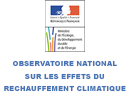The Industrial Economics of Clean Development and Joint Implementation Mechanisms
The Industrial Economics of Clean Development and Joint Implementation Mechanisms
This project is aimed at developing industrial economic analysis of project mechanisms using the Clean Development or Joint Implementation principles. The economic rationale underlying the two mechanisms is similar: they are most often systems in which a third party (for instance, a company from an Appendix 1 country 1) provides a GHG emitter located in a Southern or Eastern European country with funding, know-how, skills and/or technology in order to reduce its GHG emissions, and receives compensation in the form of emissions credits.
Our hypothesis is that it will not be possible to predict the spread of Clean Development unless we look at how the projects fit into the broader competitive strategy of the firms involved. Incorporating the commercial, competitive and economic dimensions of such projects requires an industrial economic approach. With this in mind, the project aims to provide a response to the following questions: how can the wide variety of clean development and joint implementation projects best be described? How do these mechanisms fit into the industrial and innovation strategy of the companies involved? What is the nature of the obstacles to introducing GHG-reducing technologies, justifying the contribution of a third party?
The project encompasses a variety of activities: putting together a database that comprehensively describes existing clean development and joint implementation projects, three case studies of projects and micro-economic modelling combining aspects of industrial economics, innovation economics, intellectual property and environmental economics.
In terms of environmental management, the expected outcomes include an assessment of the medium-term dissemination possibilities of clean development and joint implementation mechanisms. It is more broadly aimed at ensuring a better understanding of the mechanisms by which energy-efficient technologies are spread to Southern countries and those of the former Soviet Union.
| Coordinators |
Matthieu GLACHANT, Maître de recherche, CERNA, Ecole des Mines |
| Partnership |
Ecole des Mines |
| Funding |
ADEME
|




